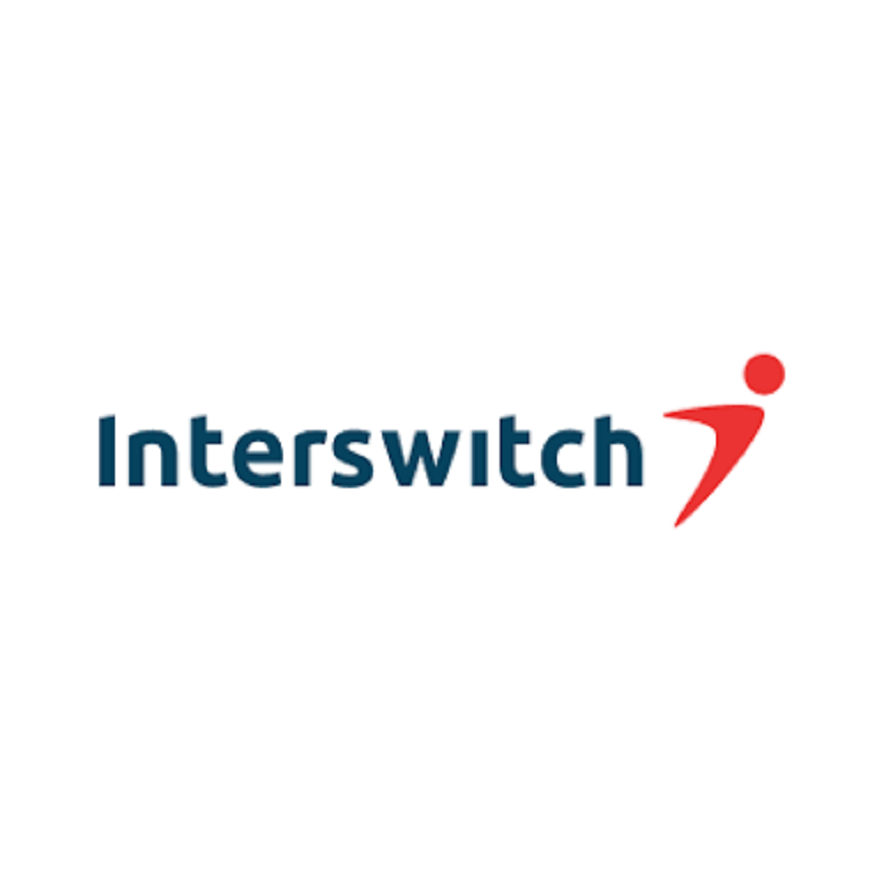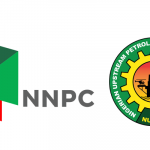Technology
Can the Blockchain Really Bypass Government Policies?

One of the importance of the blockchain is Decentralization, but how do blockchain stakeholders boycott real-life politics in the actualization of their goals?
For instance, the United States’ sanction on countries like Iran is causing many US-based companies to re-evaluate their release of goods and services to the Iranian market. These companies are forced to weigh their options carefully before picking a side, and so far, the many occurrences in this field have been detrimental to the financial inclusion of Iran into the cryptocurrency space.
The four recent ones are
- Gitcoin, a crypto crowdfunding platform, put paid to a rally to help Farsi-students learn Ethereum coding, fearing US sanctions.
- BitGo, a crypto wallet startup getting penalized in 2020 for interacting with users in US-sanctioned countries. Actually, BitGo had a little fault in this issue, as the problem arose from its clients receiving payment from sanctioned countries. The Office of Foreign Assets Control (OFAC) explained that the US sanctions prohibit that.
- Binance, a global crypto exchange, has also been known to deactivate accounts from the Middle East region; especially Iran and Cuba.
- ConsenSys Academy, a blockchain startup focusing on Ethereum-centric knowledge, also came under the limelight in 2021 for banning about 50 Iranian students from its smart-contract learning platform. While it was against the company’s policy, they had to issue the exit claiming a review was done on their platform and individuals who are located in countries prohibited by the US law were removed.
Following ConsenSys ban of Iranian students, GItcoin remained more or less one of the only hopes for Iranians to get into the crypto space with a certificate, and when the campaign started to help Farsi-speaking students in March, it seemed like a dream come true.
On Gitcoin, the news came as a shock to all when its COO announced in December that it was marking all donations as inactive. The fundraiser was shifted to a European platform which is based in Barcelona, Spain. Giveth, the new platform for the fundraiser event has seen donations of up to $8,000 for volunteers that have roots in Iran.
Despite this, everyone still seems shocked that real-life politics still has a say in matters of decentralization and borderless policies. One of the shocked individuals was Sahar Rahbari, a course creator for Farsi-speaking people. In an interview with Coindesk, he expressed his displeasure at the policy and lamented why Iranians are always at the receiving end.
Another course contributor, this time from ConsenSys, explained that though the US companies’ fear is unwarranted, it is understandable. The rules concerning foreign sanctions remain unclear, and to avoid legal troubles, many US companies are outrightly keeping Persians as far away as possible.
While it would have been better to have more explicit details of how Gitcoin got to know about the grant and its probable breach of US laws, all we have been able to gather from the US quarters is that this is not in any way a discriminatory effort, as the representative spoken to explained that there are other Farsi-speaking communities on Gitcoin’s program, and none other have been flagged down.
The process of the Gitcoin grant is simple. Any grant called is first raised by its community into a specified Ethereum wallet with all transactions recorded on the Eth block explorer. The Gitcoin algorithm matches every Ethereum spent with the DAI stablecoin
The grant proposal for the Farsi-speaking people became inactive less than 12 hours after it was first drafted due to some suspicion from the Gitcoin team that the grant might have trespassed US laws. As a precautionary measure, the difficult decision had to be taken.
When asked about this report, the Gitcoin team explained that they received a call on December 7th about a new grant listed on their platform. The journalist, who called, preferring to remain anonymous, explained the US sanctions to Iran to the team and told them they might have just crossed a red line.
Because the terms of the sanctions were not clearly stated, the team was put in limbo. After contacting legal counsel, the team unanimously chose to shut down the campaign before it disrupts the entire network.
The Gitcoin team emphasized the need to make the funding process more decentralized and assured everyone they would make that happen, but pending the time that materializes, they have to err on the side of caution and follow US laws since they are a US-based company.
A previous occurrence
While many might want to berate Gitcoin for their choice, it is better to zoom out and look at the whole picture. Several months ago, the United States government jailed a citizen because he went to give a speech about blockchain technology and Web 3.0 in North Korea.
The man, Ethereum developer Virgil Griffith is the recipient of one of the scariest crime cases in the blockchain era.
His case shook the Ethereum community as no one expected the US government to be that strict. Even people that travelled with him without giving any speech now fear for their lives and safety. Gitcoin’s co-founder cited this case and asked everyone involved in Web 3.0 to move carefully, and lose some battles in order to win the war. According to him, it would not be really responsible to put their donors under the risk of OFAC.
While this news does not come good for the cryptocurrency market, the market is still optimistic about ETH2’s merger with the Ethereum mainnet. Stakers can earn passively through https://redot.com/eth2/
Technology
Leticia Otomewo Becomes Secure Electronic Technology’s Acting Secretary

By Aduragbemi Omiyale
One of the players in the Nigerian gaming industry, Secure Electronic Technology (SET) Plc, has appointed Ms Leticia Otomewo as its acting secretary.
This followed the expiration of the company’s service contract with the former occupier of the seat, Ms Irene Attoe, on January 31, 2026.
A statement to the Nigerian Exchange (NGX) Limited on Thursday said Ms Otomewo would remain the organisation’s scribe in an acting capacity, pending the ratification and appointment of a substantive company secretary at the next board meeting.
She was described in the notice signed by the Managing Director of the firm, Mr Oyeyemi Olusoji, as “a results-driven executive with 22 years of experience in driving business growth, leading high-performing teams, and delivering innovative solutions.”
The acting secretary is also said to be “a collaborative leader with a passion for mentoring and developing talent.”
“The company assures the investing public that all Company Secretariat responsibilities and regulatory obligations will continue to be discharged in full compliance with the Companies and Allied Matters Act, applicable regulations, and the Nigerian Exchange Limited Listing Rules,” the disclosure assured.
Meanwhile, the board thanked Ms Attoe “for professionalism and contributions to the Company during the period of her engagement and wishes her well in her future endeavours.”
Technology
Russia Blocks WhatsApp Messaging Service

By Adedapo Adesanya
The Russian government on Thursday confirmed it has blocked the WhatsApp messaging service, as it moves to further control information flow in the country.
It urged Russians to use a new state-backed platform called Max instead of the Meta-owned service.
WhatsApp issued a statement earlier saying Russia had attempted to “fully block” its messaging service in the country to force people toward Max, which it described as a “surveillance app.”
“Today the Russian government attempted to fully block WhatsApp in an effort to drive people to a state-owned surveillance app,” WhatsApp posted on social media platform X.
“Trying to isolate over 100 million users from private and secure communication is a backwards step and can only lead to less safety for people in Russia,” it said, adding: “We continue to do everything we can to keep users connected.”
Russia’s latest move against social media platforms and messaging services like WhatsApp, Signal and Telegram comes amid a wider attempt to drive users toward domestic and more easily controlled and monitored services, such as Max.
Russia’s telecoms watchdog, Roskomnadzor, has accused messaging apps Telegram and WhatsApp of failing to comply with Russian legislation requiring companies to store Russian users’ data inside the country, and of failing to introduce measures to stop their platforms from being used for allegedly criminal or terrorist purposes.
It has used this as a basis for slowing down or blocking their operations, with restrictions coming into force since last year.
For Telegram, it may be next, but so far the Russian government has been admittedly slowing down its operations “due to the fact that the company isn’t complying with the requirements of Russian legislation.”
The chat service, founded by Russian developers but headquartered in Dubai, has been a principal target for Roskomnadzor’s scrutiny and increasing restrictions, with users reporting sluggish performance on the app since January.
Technology
Nigerian AI Startup Decide Ranks Fourth Globally for Spreadsheet Accuracy

By Adedapo Adesanya
Nigerian startup, Decide, has emerged as the fourth most accurate Artificial Intelligence (AI) agent for spreadsheet tasks globally, according to results from SpreadsheetBench, a widely referenced benchmark for evaluating AI performance on real-world spreadsheet problems.
According to the founder, Mr Abiodun Adetona, the ranking places Decide alongside well-funded global AI startups, including Microsoft, OpenAI, and Anthropic.
Mr Adetona, an ex-Flutterwave developer, also revealed that Decide now has over 3,000 users, including some who are paying customers, a signal to the ability of the startup to scale in the near future.
SpreadsheetBench is a comprehensive evaluation framework designed to push Large Language Models (LLMs) to their limits in understanding and manipulating spreadsheet data. While many benchmarks focus on simple table QA, SpreadsheetBench treats a spreadsheet as a complex ecosystem involving spatial layouts, formulas, and multi-step reasoning. So far, only three agents rank higher than Decide, namely Nobie Agent, Shortcut.ai, and Qingqiu Agent.
Mr Adetona said SpreadsheetBench measures how well AI agents can handle practical spreadsheet tasks such as writing formulas, cleaning messy data, working across multiple sheets, and reasoning through complex Excel workflows. Decide recorded an 82.5% accuracy score, solving 330 out of 400 verified tasks.
“The result reflects sustained investment in applied research, product iteration, and learning from real-world spreadsheet workloads across a wide range of use cases,” Mr Adetona told Business Post.
For Mr Adetona, who built Decide out of frustration with how much time professionals spend manually cleaning data, debugging formulas, and moving between sheets, “This milestone highlights how focused engineering and domain-specific AI development can deliver frontier-level performance outside of large research organisations. By concentrating on practical business data problems and building systems grounded in real user environments, we believe smaller teams can contribute meaningfully to advancing applied AI.”
“For Decide, this is a foundation for continued progress in intelligent spreadsheet and analytics automation,” he added.
-

 Feature/OPED6 years ago
Feature/OPED6 years agoDavos was Different this year
-
Travel/Tourism10 years ago
Lagos Seals Western Lodge Hotel In Ikorodu
-

 Showbiz3 years ago
Showbiz3 years agoEstranged Lover Releases Videos of Empress Njamah Bathing
-

 Banking8 years ago
Banking8 years agoSort Codes of GTBank Branches in Nigeria
-

 Economy3 years ago
Economy3 years agoSubsidy Removal: CNG at N130 Per Litre Cheaper Than Petrol—IPMAN
-

 Banking3 years ago
Banking3 years agoSort Codes of UBA Branches in Nigeria
-

 Banking3 years ago
Banking3 years agoFirst Bank Announces Planned Downtime
-

 Sports3 years ago
Sports3 years agoHighest Paid Nigerian Footballer – How Much Do Nigerian Footballers Earn























